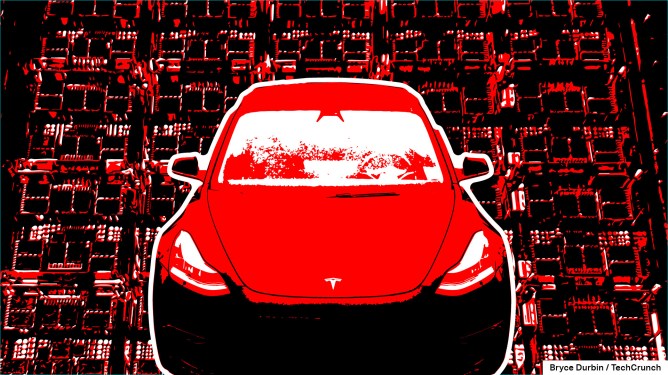Tesla is disbanding the team behind its Dojo supercomputer, ending the automaker’s efforts to develop in-house chips for driverless technology. According to reports, Dojo’s lead, Peter Bannon, is leaving the company, and the remaining team members will be reassigned to other data center and compute projects within Tesla.
The decision to shut down Dojo follows the departure of around 20 employees who left Tesla to start their own AI company, DensityAI. The startup, founded by former Dojo head Ganesh Venkataramanan and ex-Tesla employees Bill Chang and Ben Floering, is reportedly preparing to come out of stealth mode. DensityAI is developing chips, hardware, and software to power AI data centers for robotics, AI agents, and automotive applications.
This move comes at a critical time for Tesla, as CEO Elon Musk has been pushing to position the company as an AI and robotics leader. Despite a limited robotaxi launch in Austin earlier this year—which involved Model Y vehicles with human supervisors and reportedly encountered issues—Musk has emphasized Tesla’s AI ambitions.
Dojo, which Musk has promoted since 2019, was once considered central to Tesla’s self-driving goals due to its ability to process vast amounts of video data. In 2023, Morgan Stanley predicted Dojo could add $500 billion to Tesla’s market value by enabling new revenue streams like robotaxis and software services. As recently as last year, Musk stated Tesla’s AI team would “double down” on Dojo ahead of the company’s robotaxi reveal in October.
However, discussions about Dojo faded by August 2024, when Musk began promoting Cortex, Tesla’s new AI training supercluster in Austin. The Dojo project combined supercomputing with in-house chip development. Tesla first unveiled its D1 chip at its 2021 AI Day, with plans for an improved D2 chip to address bottlenecks.
Now, Tesla reportedly plans to rely more on external partners like Nvidia, AMD, and Samsung for compute and chip manufacturing. Last month, Tesla signed a $16.5 billion deal with Samsung to produce its AI6 inference chips, designed to power everything from Full Self-Driving (FSD) to the Optimus robot and high-performance AI training.
During Tesla’s second-quarter earnings call, Musk hinted at potential redundancies, suggesting convergence between Dojo 3 and the AI6 chip. Meanwhile, Tesla’s board has proposed a $29 billion pay package to retain Musk and keep him focused on Tesla’s AI initiatives rather than his other ventures, including xAI.
Tesla has not yet provided further details on the disbanding of the Dojo team.

